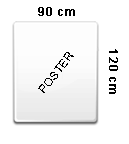Write Better: A Comprehensive Guide
Want to learn how to write more effectively? Whether you are a beginner looking to enhance your writing skills or a seasoned pro seeking to polish your craft, this guide is for you. With the right tools and strategies, you can elevate your writing to the next level. This comprehensive guide will provide you with practical writing tips, exercises, and techniques to help you write better. From understanding the basics of sentence structure to developing a distinctive voice, we will walk you through the process. So, let's dive in and start writing better, one word at a time.
Writing Tips to Help You Write Better
Writing well is a skill that takes time to develop, but with the right guidance and practice, you can make noticeable improvements. Here are some Writing Guides to Master Your Writing tips for beginners and seasoned writers alike.
Start Writing
Don't let the blank page intimidate you. The first step to becoming a better writer is to start writing. Even if you feel like you don't have anything to write, put your pen to paper or start typing away on your keyboard. Use your everyday experiences as prompts, write about topics that interest you, or try your hand at creative writing. The important thing is to write every day. The more you write, the better you'll get at it.
Embrace The Writing Process
Writing is not just about getting words on paper; it's a process that involves brainstorming, drafting, revising, and editing. Embrace each stage of the writing process. This is where you can transform your initial ideas into a well-structured piece of work. It's essential to be patient and give yourself the freedom to explore different writing styles and voices. Remember, even the great writers had to start somewhere.
8 Exercises to Improve Writing Skills
To improve your writing skills, consistent practice is key. Here are eight exercises you can incorporate into your daily routine to help you write better.
Keep Your Writing Simple
One of the best writing tips is to keep it simple. Don't overcomplicate your sentences with unnecessary words or jargon. Instead, use clear and concise language that is easy to read. This will make your writing more accessible to a wider audience. Try rewriting a complex paragraph or sentence in your own words, using simpler language. This exercise will help you identify and eliminate fluff in your writing.
Break Up Your Writing into Bite-Size Pieces
Long, unbroken blocks of text can be overwhelming for readers. To make your writing easier to digest, break it up into smaller sections. Use headings, bullet points, and short paragraphs to organize your ideas. This not only improves readability but also helps you structure your thoughts more effectively. Practice this by taking a long piece of text and breaking it down into smaller sections.
Helping Everyone Become a Better Writer
Good writing skills are not reserved for authors or journalists; they are a valuable asset in any field, including business. Whether you are drafting an email, writing a report, or creating a presentation, effective writing can help you communicate your ideas clearly and convincingly. Here are some tips to help you write better in your everyday life.
Proof Your Writing
Proofreading is a critical step in the writing process that often gets overlooked. But, it can make a big difference in the quality of your writing. Look out for common errors in grammar, punctuation, and spelling. Also, check for clarity and consistency in your ideas. If you're unsure, consider using grammar checker tools like Writer to help catch mistakes. Remember, even the most experienced writers make errors, so always proof your work.
Write Every Day
Just like any other skill, writing improves with practice. Make it a habit to write every day. This doesn't mean you have to churn out a full-length novel or article daily. It could be as simple as jotting down your thoughts in a journal, blogging, or even commenting on an article you read. The key is to make writing a part of your daily routine.
Empower Your Sales Team with Persuasive Writing
Persuasive writing is a powerful tool that can be used to influence your audience's thoughts and actions. This is especially important in business writing where the goal is often to persuade the reader to buy a product or service. Here are some tips on how to write persuasively.
Understand Your Audience
Effective persuasion begins with understanding your audience. What are their needs, wants, and pain points? Once you have a clear understanding of your audience, you can tailor your message to resonate with them. Use words and phrases that they are likely to connect with. The more you can relate to your audience, the more persuasive your writing will be.
Use Strong, Action-Oriented Language
In persuasive writing, your word choice matters. Use strong, action-oriented language to convince your reader. Instead of passive phrases, opt for active ones. This makes your writing more direct and powerful. For example, instead of saying, "Our product could potentially help you," say, "Our product will solve your problem." The latter is more persuasive and leaves a stronger impression on the reader.
Dos and Don'ts of Writing Better
Here are some dos and don'ts to keep in mind as you strive to write better:
- Do write every day. Practice is essential for improvement.
- Don't ignore the writing process. Embrace each stage, from brainstorming to editing.
- Do keep your writing simple and clear. Avoid jargon and unnecessary complexity.
- Don't overlook proofreading. It's crucial for catching errors and improving the overall quality of your writing.
- Do understand your audience. Tailor your message to resonate with them.
- Don't be afraid to express your ideas. Be creative and original.
Frequently Asked Questions
Here are some commonly asked questions about writing better:
How can I improve my writing skills?
Improving your writing skills involves regular practice, learning from other writers, and being open to feedback. Consider reading books on how to write better, attending writing workshops, or even getting a writing coach. Remember, writing is a journey of constant learning and improvement.
How can I write more clearly?
To write more clearly, keep your sentences short and use simple, straightforward language. Avoid jargon and unnecessary words. Also, ensure that your ideas flow logically from one Note: Please use the key phrases and words that need to be used. You are free to arrange the structure as long as it's in a logical flow and covers the points mentioned.
Useful Resources: https://thegameroof.com/using-video-games-in-the-classroom-leveling-up-education-in-a-technological-era/
User login
Latest content
Co-funded by
Multi-type Content Repurposing and Sharing in Medical Education

Presentation instructions
Poster presenation





